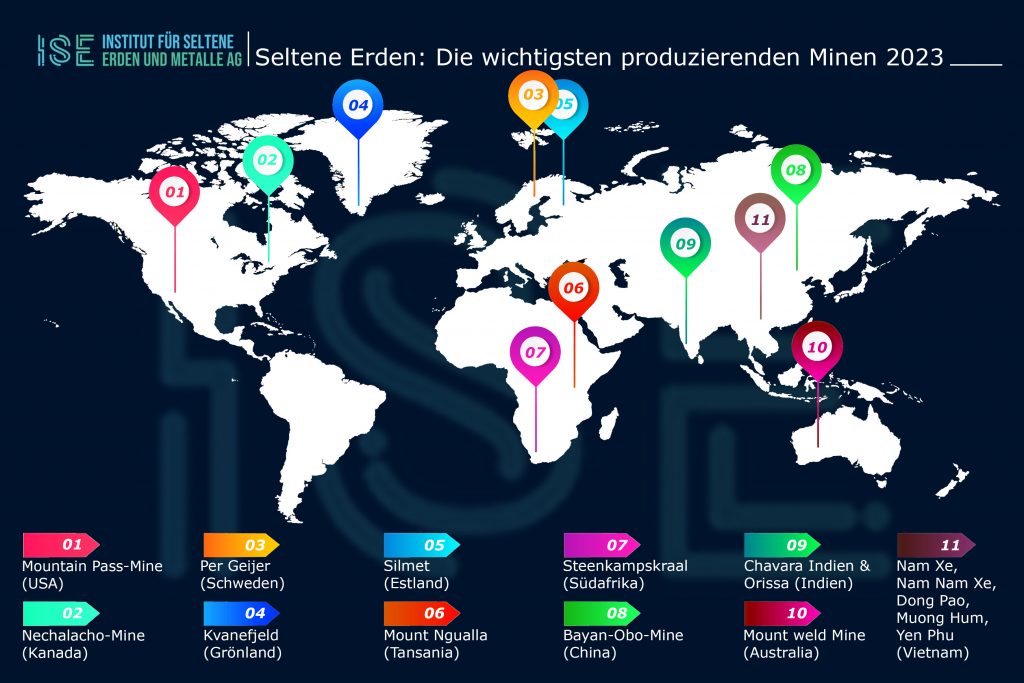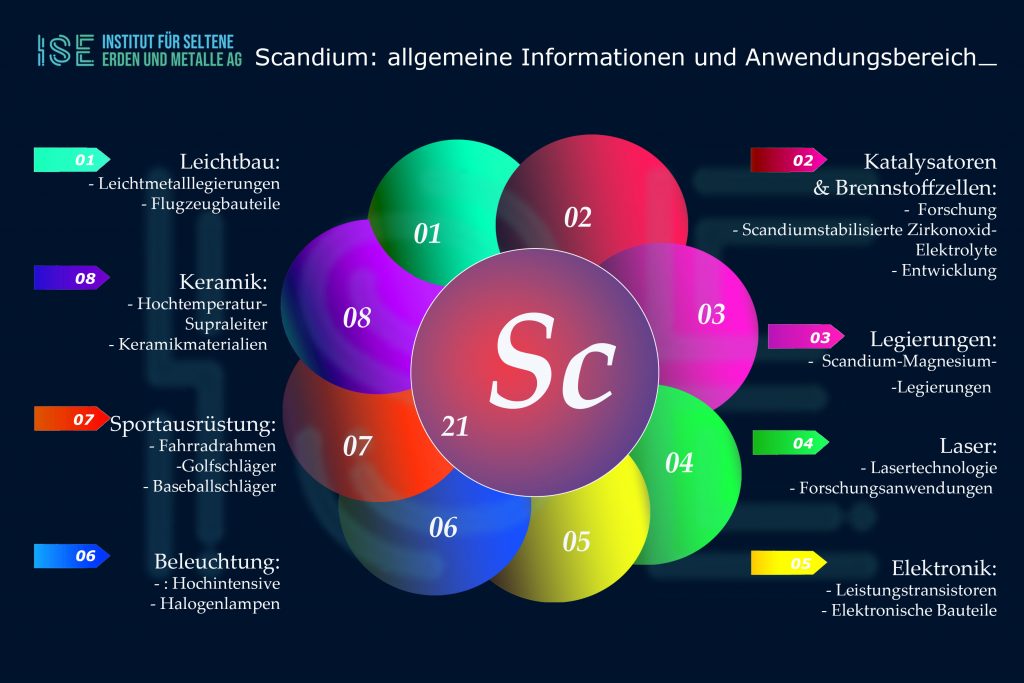The German public deals intensively with China - exclusive
Frank Hartmann, head of the press department of the German Embassy in Beijing, spoke to China.org.cn about the Chancellor's recent visit to China and about German-Chinese cooperation in the areas of business, media and culture.
China.org.cn: Federal Chancellor Angela Merkel was on a penultimate week for a three-day visit to China. German-Chinese cooperation against the euro crisis was also an important topic. Chinese Premier Wen Jiabao has now stated that China is considering a stronger involvement in the EFSF and ESM rescue tools. How does the German side see the Chinese attitude and the measures China has taken in overcoming the debt crisis?
Hartmann: The visit of the Federal Chancellor was very favorable in terms of time. Shortly after the European summit in Brussels, she briefed Chinese Premier Wen Jiabao on the results of the EU summit, above all on the fiscal union that she helped launch. to stabilize the euro over the long term.
We are aware that the primary responsibility for stabilizing the euro and resolving the crisis lies with the Europeans themselves. With this fiscal pact, we want to create lasting fiscal policy structures to prevent a new crisis. And it is very clear that the Europeans have to master these changes themselves first. But China, as Premier Wen Jiabao has said very well, has a great interest in the stability of the euro, as we do. We therefore very much welcome the fact that China wants to invest more in Europe in the future and that China has expressed its confidence in the stability of the euro. The Chancellor has once again expressly welcomed that China wants to invest both in Europe and to participate in the European stabilization mechanisms or at least has promised that it will consider participation. Whether China actually purchases the securities issued by the European Stability Mechanisms, of course, China will have to decide for itself according to its own economic needs. We want these to be decisions that are in China's own interest. Because we in Europe do not want any help from China, but we hope that China invests in Europe - and out of its own interest and for its own benefit.
So you firmly believe that China will participate in the European stability mechanisms?
The Chinese PM said for the first time that, in addition to participating in the IMF's international instruments, China is also examining whether to participate in the European Stability Instruments EFSF and ESM, and that is the first time that has been said. Whether and when this results in a concrete action and to what extent, that is of course a sovereign decision of the Chinese government.
Has the German side not made any further suggestions on how to overcome the crisis concretely?
However, we have very specifically said what we do ourselves to solve the problems. We have said what we have proposed as Germans - also together with the French and our other partners in Europe - to overcome the crisis. On the one hand there is the fiscal union in connection with a national debt brake. However, this also includes greater control of national budgets by the European Union.
The Chancellor explained to the Prime Minister what we are doing to stabilize the situation both in the short term and in the long term. The suggestion to the Chinese side was that China could invest more in the European economy. We very much welcome the statement that China also wants to participate in the European instruments of stability that the Chinese Prime Minister has met.
During her three-day trip to China, the German Chancellor visited the economically prosperous provincial capital of Guangzhou to meet German entrepreneurs. Mr. Hartmann, how are the German companies supported by the German side in their investments in China? What advantages does the Chinese market offer and what obstacles must German entrepreneurs overcome in China?
It is not so much a question of the extent to which the German government supports this, but you simply have to see what many years of experience German companies have already gained in China. We have thousands, mostly small and medium-sized companies, that have been operating successfully in the Chinese market for many years. It is not just large companies such as VW, Audi, BASF and Siemens, but also medium-sized companies that have launched a long-standing success story in their specialist areas and with their products. These success stories usually started with joint ventures. So-called “Wholly Foreign Owned Enterprises” were added later.
It is important that the companies take advantage of good preparation, a long-term strategy and professional advice. That is perhaps also a suitable reference to the Chinese side, because we do not have as many Chinese investments in Germany as there are German investments in China. That is why the Chinese should perhaps create advisory tools for Chinese companies that want to invest abroad. On the German side there are, for example, the chambers of commerce or “Germany Trade and Invest”, which support German and foreign companies in the respective partner countries. Perhaps something similar will be considered by the Chinese side in order to be able to offer professional help and advice to their own companies that are active in Europe - more than has been the case before. Because that's what companies abroad need: know-how, a long-term strategy and professional advice.
The problems of German companies in China, which I would like to address, are the equal treatment of German and domestic companies in public tenders, the question of the protection of intellectual property and - this is very important and was also addressed by Chancellor Merkel during her visit - the technology transfer which should take place on a purely voluntary basis. It is clear that joint ventures always have a technology transfer. But the transfer must include the willingness of the company to make this transfer. It's about accepting the limit to which an investor is willing to transfer his technology - because this transfer must and can only happen on a voluntary basis.
What is the current mood among German companies in this regard? Does one have the feeling that one is being pulled over the technology transfer, or do the German companies feel safe in China?
The current mood among German companies is very good. This was also demonstrated by the meeting of the Federal Chancellor with German entrepreneurs in Guangzhou. It is clear to companies that if they want to be successful in the Chinese market in the long term, they have to be ready for technology transfer. It is important for German companies, and the Chancellor has also mentioned that they can still maintain a certain technical lead over their Chinese competitors. Of course, this also puts research and development before the task of having to stay ahead of the game. Because technology transfer or not - of course you have to see that you secure the long-term success through your own inventions and advancements.
On this point, the Chancellor has asked the Chinese Prime Minister for understanding: There are always areas in technological development, the companies want to keep their own and for their own further development. Technology transfer yes, but in moderation.
As you mentioned earlier, the Chancellor expressed a desire during her visit to China for Chinese companies to invest more in Germany. How have Chinese companies in Germany developed recently?
If you compare the figures, then you will see very quickly where we are at present: we have a total of about 21 billion Euro investments made by German companies in China and on the other hand about 600 million Chinese investments in Germany. About 5.500 German companies operate in China and circa 800 mainly small Chinese companies in Germany. Of course there have been some outstanding, larger and positive investments lately - this includes, for example, the purchase of the German concrete pump manufacturer Putzmeister by the Chinese company Sany. This is an investment in the range of several hundred million euros, which creates jobs in Germany, which of course we are very welcomed.
The Chancellor has therefore called for more willingness to invest in Germany and the European market and made it quite clear that Chinese investment in Germany are welcome and in no way be restricted or restricted, but that apply to all the same rules - for locals such as for foreigners. Investing in Europe has the advantage of diversifying its international activities and becoming globally competitive. In addition, Chinese companies can gain a technological advantage through cooperation with German companies and better position themselves as global economic agents.
If you look at the German media landscape, you might get the impression that investments by Chinese companies are by no means viewed only positively - there are often reports that warn that Chinese companies are going on “cheap shopping spree” in Germany and good German ones Companies that are in financial distress due to the crisis could buy out. Do you share these fears?
There are very positive examples of investment by Chinese companies in Germany - I have just mentioned that. It may be that some of them also have the concerns you mentioned. But Germany is a cosmopolitan market, and our foreign trade lives on the fact that we as Germans are globally active, trade with foreign countries and invest in other countries. And he also lives on the fact that we have international investments in Germany, that we attract investors. And of course, China as an investor is no exception. The largest investors in Germany are of course others so far, our direct European neighbors, for example, but also countries like the USA or Japan. Therefore, it is only natural that Chinese companies invest in Germany. And I also believe that people in Germany have long since become accustomed to the fact that one can also have international bosses and supervisors in the company, and that globally active companies set up branches in Germany. This is a natural evolution in globalization and we very much welcome that - because our economic situation also depends on how much is invested in Germany and Europe. It is important that the German government welcomes Chinese investment - the German economy, by the way.
What advantages does it have for German companies to invest here in China? Is it about resources and cheap labor?
First of all, of course, there are the sales opportunities and the gigantic market. If we take the automotive industry as an example, then one of the largest German automakers may soon have the situation that more vehicles are produced in China than in Europe. These cars are made only for the Chinese market, not for other countries or for the international market. So the Chinese market, the growing consumption and the increasing purchasing power of Chinese consumers - these are the reasons that make it attractive to invest in China. The cheaper production compared to Europe may have been important in previous investments, but not anymore. China is a big market that offers good sales opportunities. However, to be successful here, you need a long-term strategy and have to gain experience locally. All this only works if you produce in China.
After these more economic issues, we now come to the latest developments in cultural exchange between Germany and China. The Chinese Year of Culture began in Germany on January 30th. As part of the year of culture, more than 500 events are to be held in important German cities under the motto “Chinah”. But unlike “Germany and China Moving Together”, the project received little recognition in Germany from the start. In their articles, several German media outlets suspected that China only wanted to do propaganda at these events. How do you view the Chinese Year of Culture and why do you think this suspicion arose?
We welcome the fact that China presents itself for the first time in this range and with so many events. We did not have such a Chinese cultural year in Germany yet. In particular, we find it positive that this cultural program also includes a number of dialogue events dedicated to social dialogue, including topics where we may have different views. For if the opinions are also different: the willingness to engage in dialogue is the most important. This requires openness, tolerance and respect for other opinions. If you bring this openness and can also deal with criticism, then both sides can only benefit from it. This way you try to hit with the Chinese Year of Culture and we are pleased about it.
Recently a book was published in Germany with the title “Alles Mythos! 20 popular misconceptions about China ”, which deals with the typical prejudices of Germans against China, such as that all Chinese eat dog meat or that every Chinese family can only have one child. Where do such errors come from and how can they be reduced?
So if you talk about books about China, then you can probably say that probably in no other European country so many books are published on China, as in Germany. It is often about the question of whether one must be afraid of China, whether it should be considered as a threat, a challenge or an opportunity. That's a pretty intense discussion. China was also a guest country at the Frankfurt Book Fair. If I see it right, then the book you mentioned deals with clichés and prejudices about China, with a healthy dose of humor.
It is important that one can overcome prejudices only by in-depth knowledge and dialogue readiness. Travel, training and above all cultural exchange can help to reduce prejudices on both sides. We currently have the impressive number of nearly 30.000 Chinese students in Germany, and several thousand German students have participated in exchange or scholarship programs here in China. The mutual interest is great. We are on the right path.
The media of both sides make enormous contributions to cultural exchange and mutual understanding. But they are also responsible for some misunderstandings. How do you assess the coverage of German media about China and how do you rate the state of development of the Chinese media?
We have a very intensive coverage of China in China. For our Chinese friends, it is important to know that the German public has a great interest and sympathy for China. China is not indifferent to the Germans, the German public is intensively dealing with China. Of course, the picture of China is heavily influenced by the media in Germany. It is important that we have a plurality in reporting. We are interested in providing as much coverage as possible in order to provide a variety of well-founded opinions on the topic. There are currently about 30 German correspondents who are active in China.
But from a Chinese perspective, you also have to understand that we have a slightly different tradition of reporting. One can perhaps say that we have a culture of debate in Germany and no culture of consensus. The media see their task in questioning politics and criticizing political measures and social ills. Which can be quite violent, especially in German domestic politics. You just have to stay relaxed and try to deal constructively with this criticism.
But if we now really objectively look at the reporting in Germany, then we notice that the negative coverage of China clearly outweighs. Can not you imagine that this leads to discomfort on the Chinese side?
Take a look, for example, at what is currently being spread about Germany in the coverage of other European countries. In connection with the euro crisis, for example. On the other hand, many a critical account of China is quite harmless. Above all, the media in Europe sees its task as pointing out the problems - and not primarily in emphasizing positive developments. That's just another journalistic tradition.
But there is also a detailed background report on China in Germany. It is certainly not true that the German press would report only negatively on China. One should not overestimate individual critical articles in the overall view.
In China, the function of the media is a bit different. In this case, the media have, above all, the task of explaining state policy. What I find very interesting about the Chinese media landscape is that there is a very intensive internet discussion here - in addition to the print media and the news channels - much more intensively than in Germany. This is a new trend in China that may go away somewhat from the traditional media to the informal sources on the Internet. This has advantages and disadvantages, but this development has impressed me very much. We do not have that in Europe in the same intensity.
Of course, this also gives the German public the chance to really see how and what is being discussed here in the Chinese public and what kinds of opinions there are on a wide variety of topics. Projects such as “Voices from China” can help to make the Chinese discussion culture known in Germany, which is perhaps even more interesting than, for example, the official reporting.
Yes, this plurality on the Internet that exists in China can be made known to the German public through such projects. With “Voices from China” the German reader is offered an overview of the Chinese blog discussions. This makes him aware that there is definitely a pluralistic public debate in China on important and current issues, which of course also helps to strengthen civil society. These are media in which the individual citizen can participate directly. This Chinese trend is not yet well known in Europe. Perhaps that should get more attention.
Can not this Internet discussion also contribute to the spread of false rumors that can do a great deal of harm in the end? Should not this be regulated as well?
The value of the Internet is just that you have a free discussion. One should, therefore, allow as much free discussion as possible and so little control of rumors, false statements and prevention of negative developments as necessary. If you want to correct rumors and other negative developments, you should act as carefully as possible. One should not disturb the discussion and not restrict the freedom.
For several years now, the German and Chinese media have maintained a regular exchange. These include, for example, the annual media forum and the “Media Ambassador” project. Could you please briefly introduce the projects? What successes have been achieved with it so far?
There are quite a few important projects in this area. One of the most important is organized by the Robert Bosch Foundation. It is a dialogue that is mainly attended by editors-in-chief, who exchange views on different ways of working and approaching, as well as mutual biases and stereotypes, also to avoid future misunderstandings and mistakes in the mutual perception. The dialogue is very open and has been very successful so far. The last time he took place in Germany. The participants also met for a talk with Helmut Schmidt. Later, the Chinese participants were also received by Federal President Wulff.
Then there is also a very successful media dialogue, which the Federal Government promotes through the Institute for Foreign Cultural Relations (IfA). We invite German and Chinese editors and journalists to exchange views on specific topics. The last time they met in Stuttgart, on the topic of local politics. Of course, it was mainly about Stuttgart 21 and the reactions of the population to the topic. The controversially discussed problem and the reporting on it was analyzed and discussed by the German and Chinese journalists - how to handle it and how to report it.
One good program to which I would like to refer is the media ambassadors of the Robert Bosch Foundation. This is an exchange program involving younger journalists, who then go to the other country for three months to see how the other side works journalistically - and then to report on it.
You have just approached Stuttgart 21 - how did the Chinese journalists react when they learned of the fierce debate and protests over the rebuilding of Stuttgart Main Station?
I was not there, but what I heard from some participants was, for example, that some Chinese participants were amazed at how long this whole process was in Germany, how long it took and how difficult it was to implement such a project , In China, there are many times larger infrastructure projects that usually do not attract such public protests. I think that was a refreshing and new experience for both sides: to see how differently such projects - some of which are very critical in Germany, but rather in China as projects of overall national development and therefore predominantly positive - are accepted by the population.
From Media to Art - The Art of the Enlightenment exhibition opened in Beijing last April. A number of forums and dialogues have now been held, which have attracted the attention of the Chinese audience. In your opinion, have the objectives of the events at the exhibition already been achieved?
From our point of view, the event was an outstanding success. We had more than 350.000 Chinese visitors - and perhaps more importantly, the exhibition was just a starting point for many more events - so it was a catalyst for dialogue between China and Germany. Against this background, the Enlightenment and the value that it may perhaps have for China, discussed.
The exhibition ends in March. But we would also like to continue the dialogue that has begun.
2012 celebrates the Federal Republic and the People's Republic the 40 anniversary of the establishment of diplomatic relations. Could you please tell us at the end which events are planned at the state level this year?
In addition to China's Cultural Year in Germany, we also have a whole range of other activities. In March, the Minister of State in the Foreign Office, Ms. Cornelia Pieper, will ceremoniously close the exhibition "Art of the Enlightenment". In April, Prime Minister Wen Jiabao will travel to Germany and visit the Hanover Fair, where China is the guest country, together with the Federal Chancellor. The “Future Bridge” dialogue will take place for the first time in May. From our point of view, this is a very important project in which a constant dialogue between young managers from Germany and China should be established. The project will be carried out by the Mercator Foundation in Beijing and Chongqing. The actual anniversary is then on October 11th. We are planning a big citizens' party to celebrate 40 years of diplomatic relations, coupled with a ceremony, possibly in the Chinese National Theater, to which the German Foreign Minister will probably come to Beijing. From a political point of view, it is also important for us that Germany will open the fifth German Consulate General in Shenyang in this anniversary year. These are the main events and events planned for this year. There are also numerous top-class German orchestras that will be coming to China for concerts this year, for example the Bavarian Radio Symphony Orchestra and the symphony orchestras of Leipzig, Dresden, Nuremberg and Frankfurt. In addition, the State Ballet from Hamburg, Stuttgart and Berlin will be performing in various cities in China this year and the theaters in Hamburg and Munich intend to continue their cooperation with their partners here in China.
Mr. Hartmann, we thank you for this interview.
(german.china.org / By Marc-Stephan Arnold and Ren Bin, Beijing)





